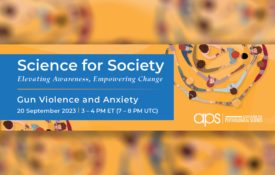-
Your Brain Looks for ‘Winning Streaks’ Everywhere—Here’s Why
Basketball players, coaches, and fans agree: a person is more likely to make a shot after they’ve successfully completed one or multiple consecutive shots than after they’ve had a miss. Players therefore know to “feed” the teammate who’s “hot.” Coaches know to bench the one who’s not. This understanding is dittoed for the batter who’s on a hitting streak, the poker player who’s drawing strong hands and the stock picker who has a run of soaring successes. In life, as in sports, it pays to go with the hot hand.
-

Psychological Aspects of Erectile Dysfunction Deserve More Attention, Health Scientists Say
Personality traits and mental health problems are among the factors linked to erectile dysfunction, a condition that affects up to 80% of men over the age of 60. But researchers often overlook these psychological causes and their treatments in favor of biological components, according to a recent article in Current Directions in Psychological Science.
-

Myth of Male “Superior Math Ability” Hinders Female Students’ Math Performance
Increased exposure to peers who believe that boys are innately superior at math can erode girls’ mathematics performance over the course of the academic year, new research in Psychological Science suggests.
-

Science for Society: Insights from Psychological Science on Gun Violence and Anxiety
In the first webinar of APS’s Science for Society series on September 20, 2023, scientists and advocates shared their expertise and perspectives on the relationship between gun-violence and anxiety.
-

Association for Psychological Science (APS) Statement on Looming U.S. Government Shutdown
APS calls on Congress to promptly fund the U.S. government for the coming fiscal year to sustain important scientific programs and initiatives.
-

New Content From Current Directions in Psychological Science
A sample of articles on facts about sign languages, the power of identity, reliable lie-detection methods, humans’ bias blind spot, the development of visual attention in infancy, and much more.

